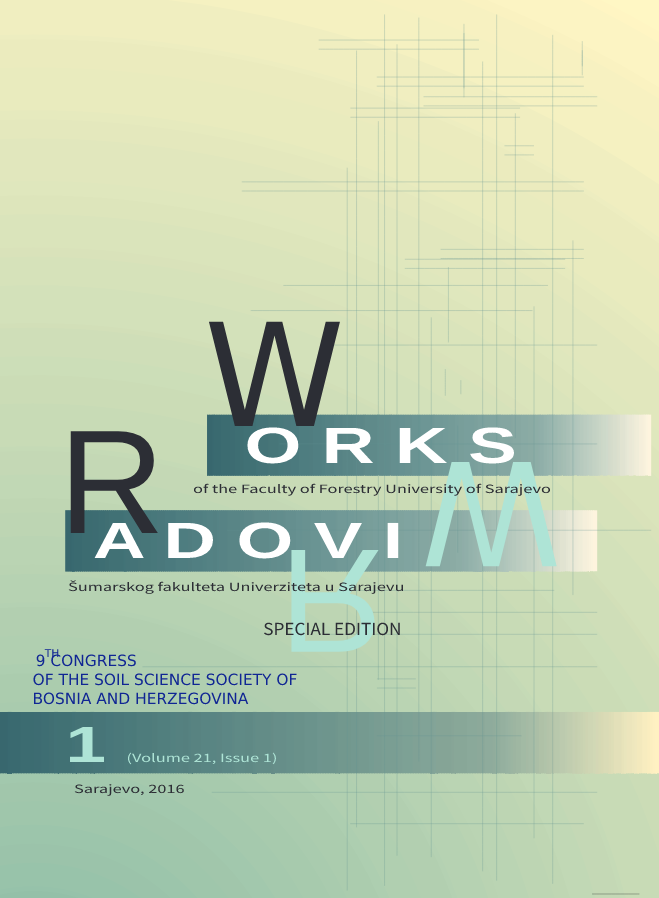THE AGRICULTURAL LAND SUITABILITY AND AGROECOLOGICAL ZONING AS THE MAIN FACTORS FOR RURAL SPATIAL PLANNING IN KOSOVO
DOI:
https://doi.org/10.54652/rsf.2016.v21.i1.296Ključne riječi:
land suitability, agro-ecological zoning, rural spatial planning, KosovoSažetak
UDK 631.164(497.115)
The soil is an important non-renewable resource that is vital to human life. It supports terrestrial ecosystems such as biodiversity, fresh air and water, food security, cultural heritage and the built environment, representing a natural and an economical asset of a country. Appropriate scientific information is crucial for sustainable soil management by local, national and regional governing institutions. Productive land is a critical resource for food and biomass production. In a broader sense land resources, management is the implementation of land use planning, as agreed between and with the direct participation of stakeholders. It is achieved through political decisions; legal, administrative and institutional execution; demarcation on the ground; inspection and control of adherence to the decisions; solving of land tenure issues; settling of water rights; issuing of concessions for plant and animal extraction (timber, fuel wood, charcoal and peat, non-wood products, hunting); promotion of the role of women and other disadvantaged groups in agriculture and rural development in the area, and the safeguarding of traditional rights of early indigenous peoples. Land suitability categorization and the agro-ecological zoning are of essential importance for the decision making for justified developments in many policy areas including agriculture and spatial planning.
Downloads
References
Administrative Instruction No. 02/2012 on Classification of Suitability of Agriculture Land, Government of Kosova, Ministry of Agriculture, Forestry and Rural Development Prishtina, 2012.
Administrative Instruction No. 41/2006, On Change of Use of Agricultural Land, Government of Kosova, Ministry of Agriculture, Forestry and Rural Development Prishtina, 2006.
Assembly of Republic of Kosovo, Law No. 04/L-174, on Spatial Planning, 2013 Prishtina, Kosovo.
EULUP Project Number 2010/230-489, Further Support to Land Use - Eulup, Agricultural Land Suitability Classification, Technical Report No.3, Prishtina, 2011.
FAO, 1996. Agro-ecological Zoning. FAO Soils Bulletin 73, Food and Agriculture Organization of the United Nations, Rome, Italy.
Global Agro-Ecological Zones Assessment: Methodology and Results, Interim Report IR- 00-064, International Institute for Applied Systems Analysis, November, 2000.
Ministry of Agriculture, Forestry and Rural Development (2014), Green Report 2014, Prishtina, Kosovo.
Ministry of Environment and Spatial Planning Kosovo (2015), A Guide for Rural Spatial Planning in Kosovo, Prishtina, Kosovo.























